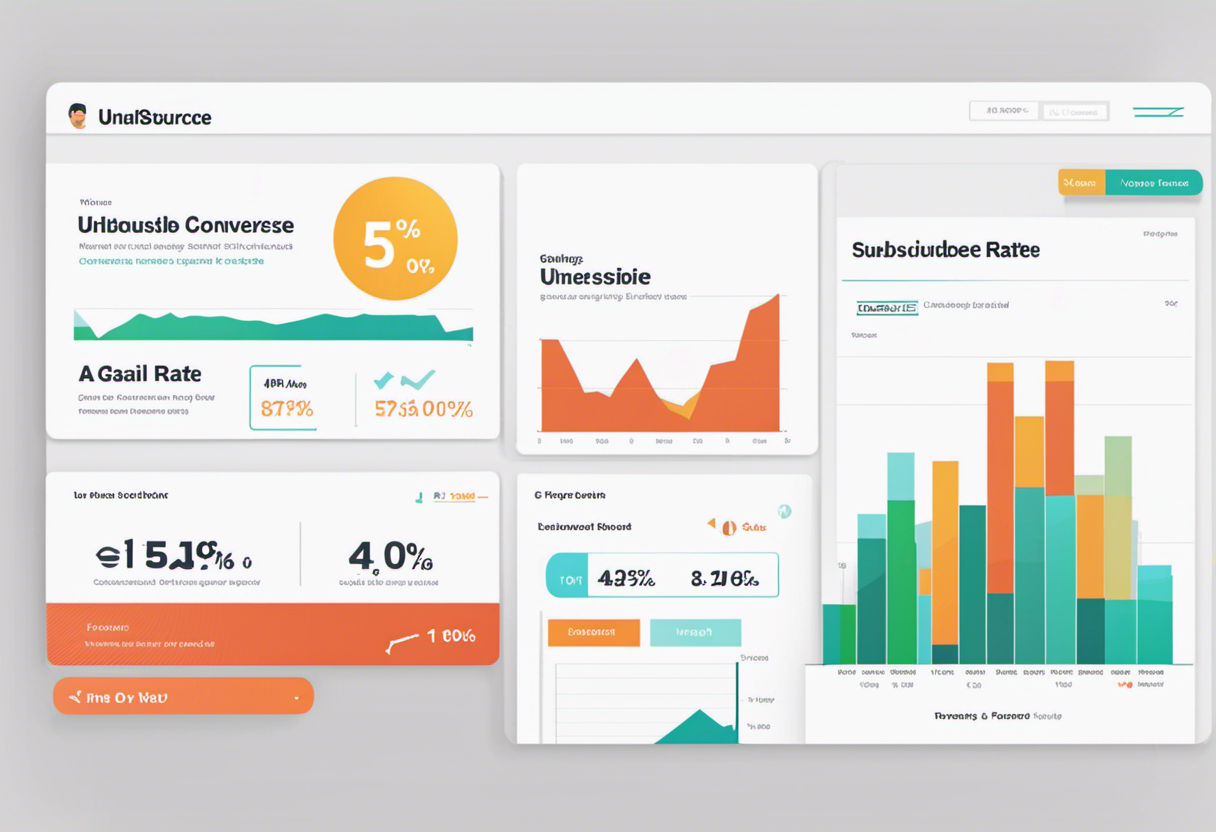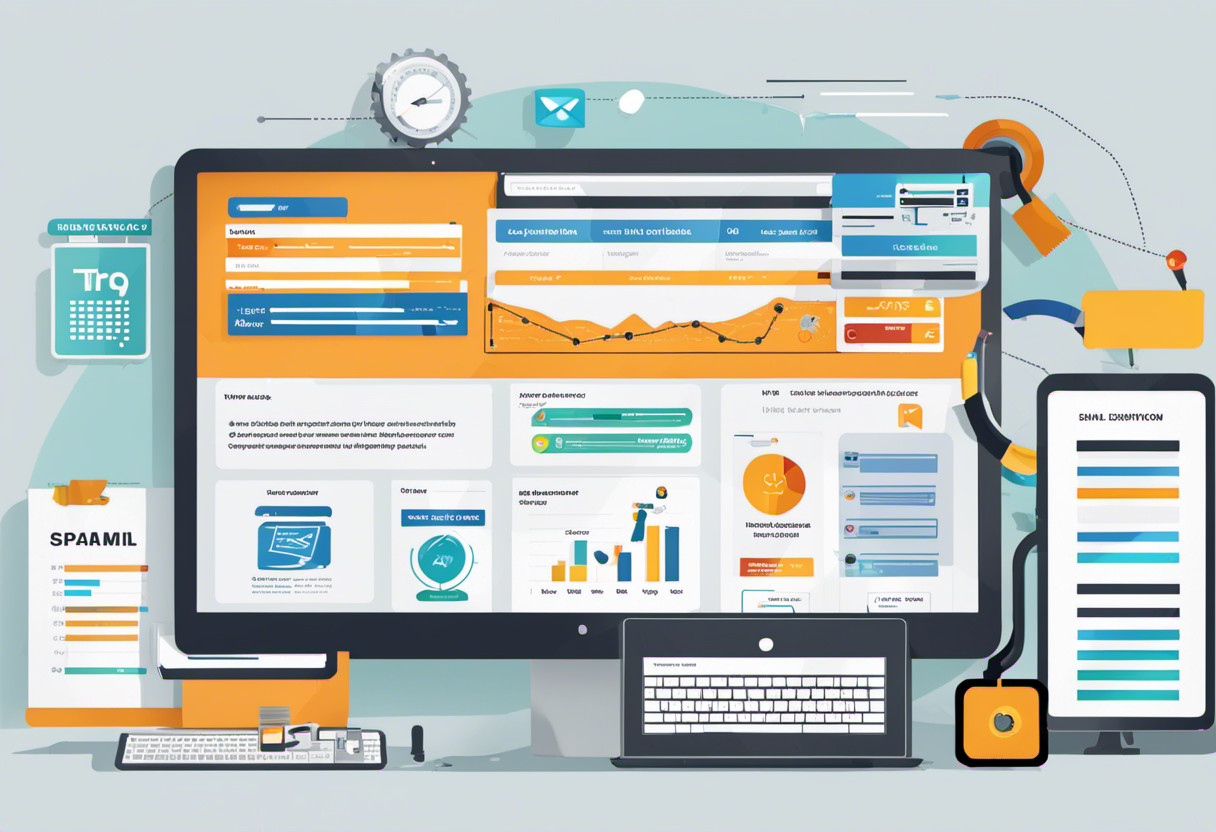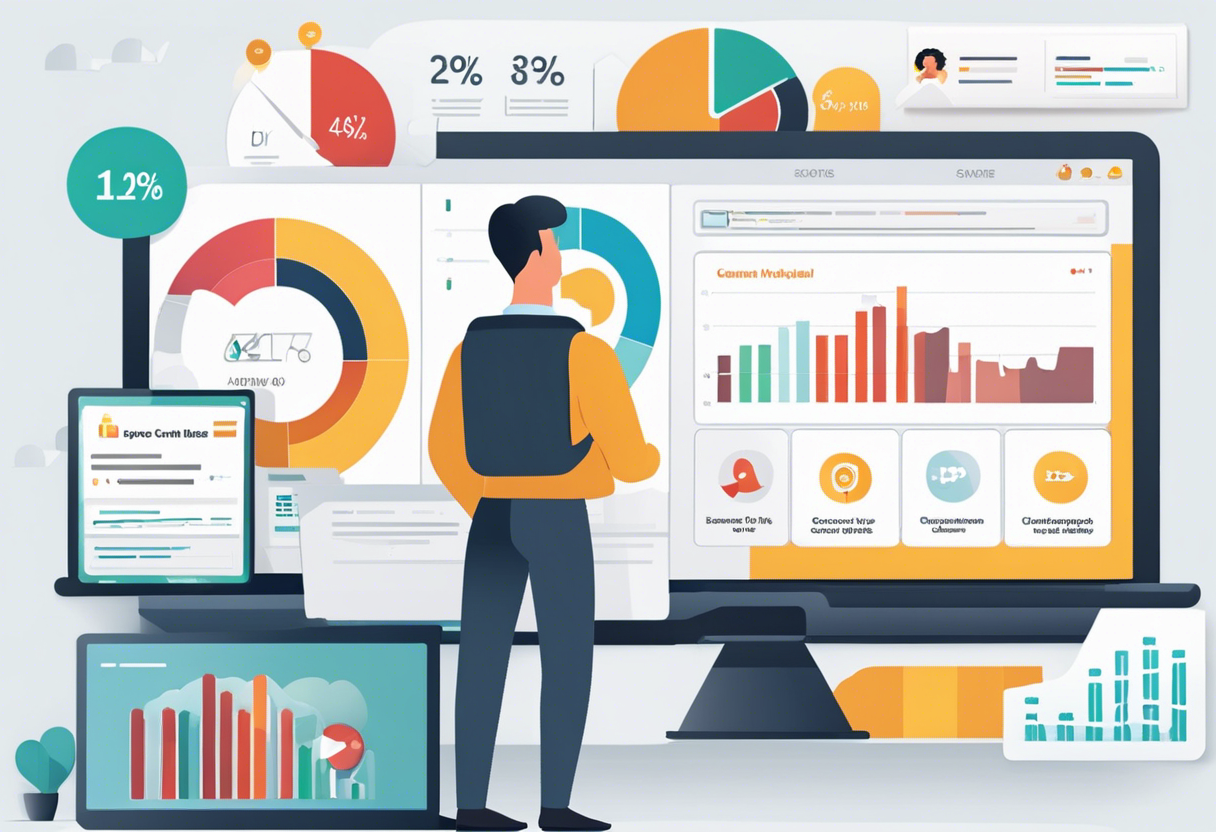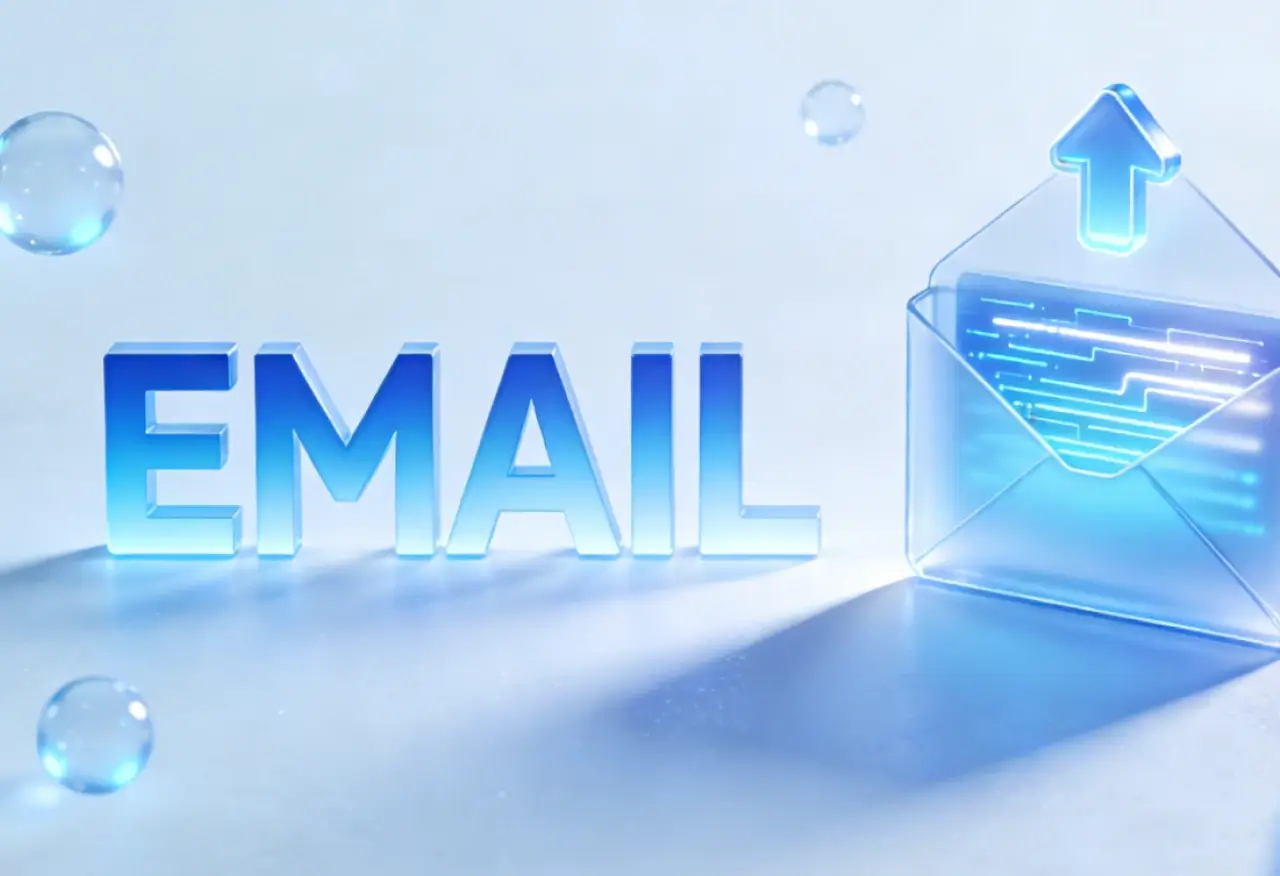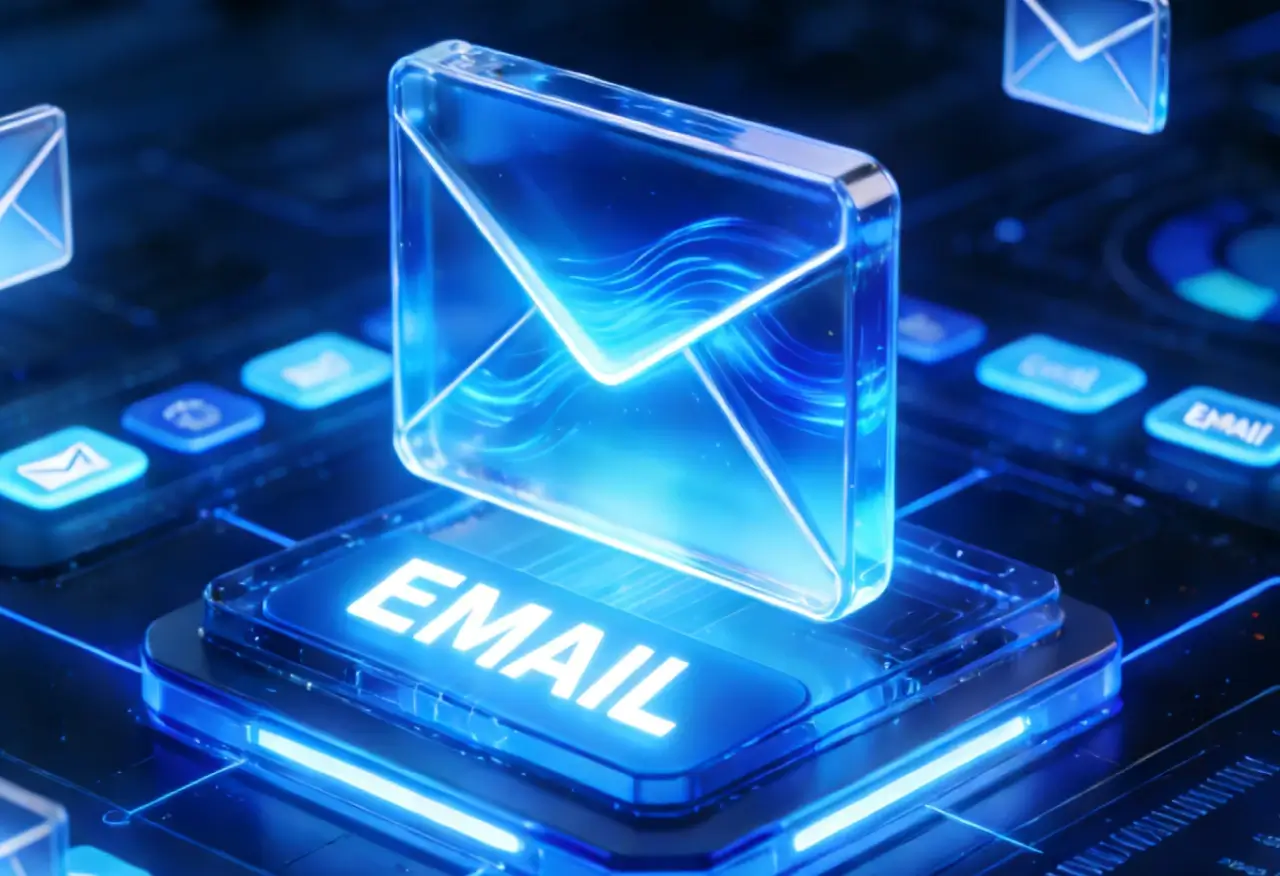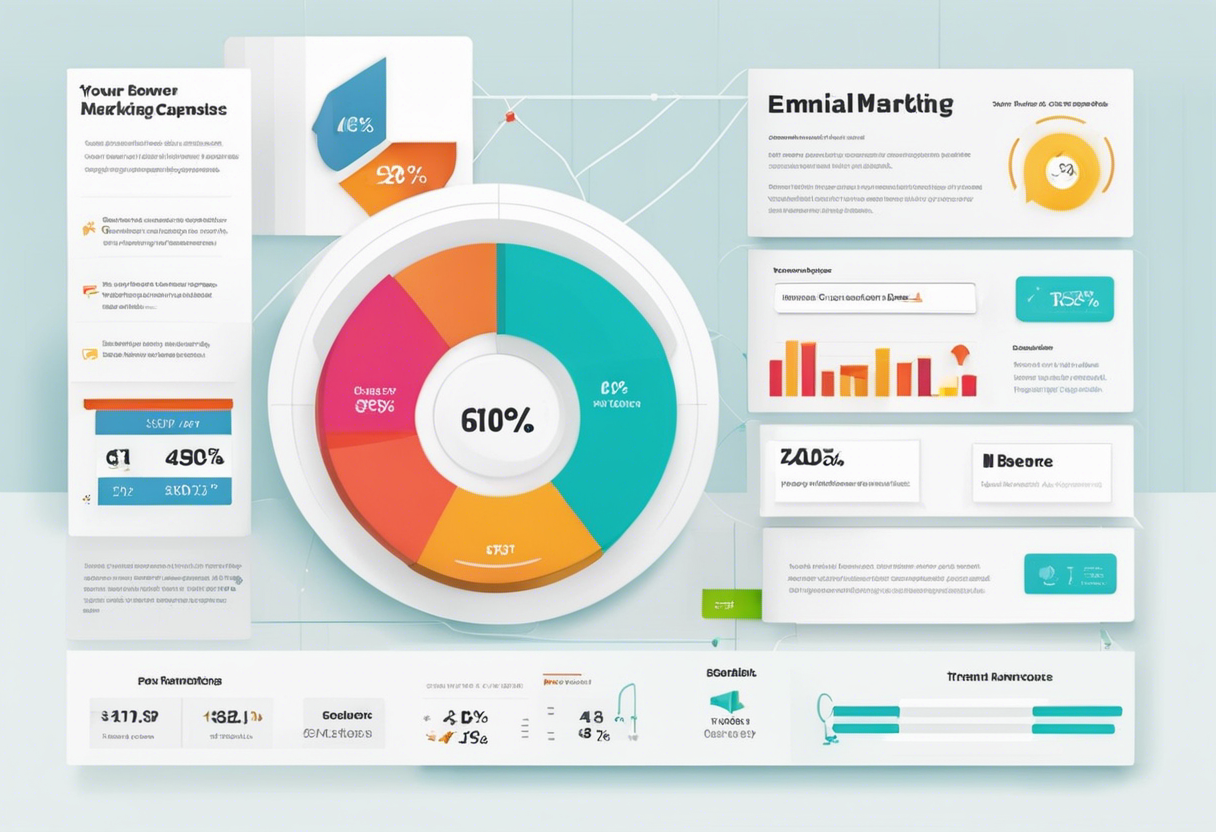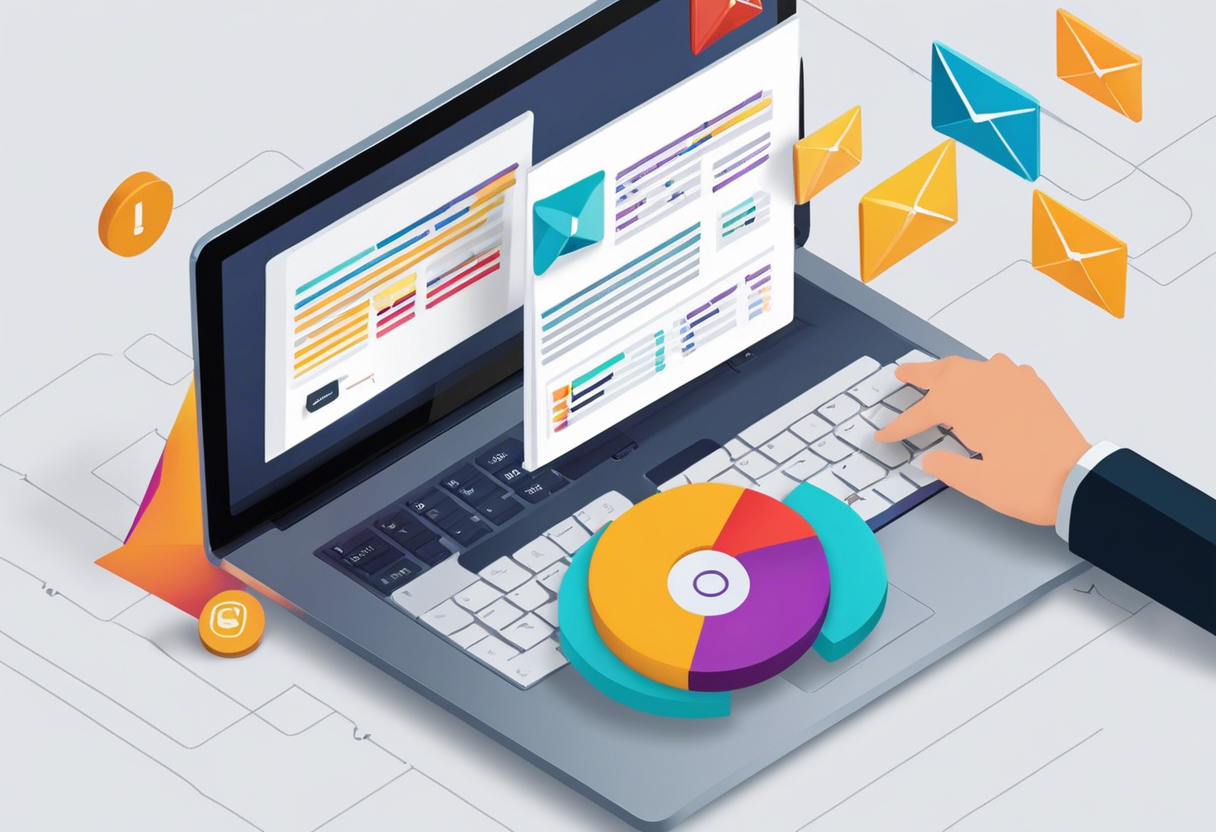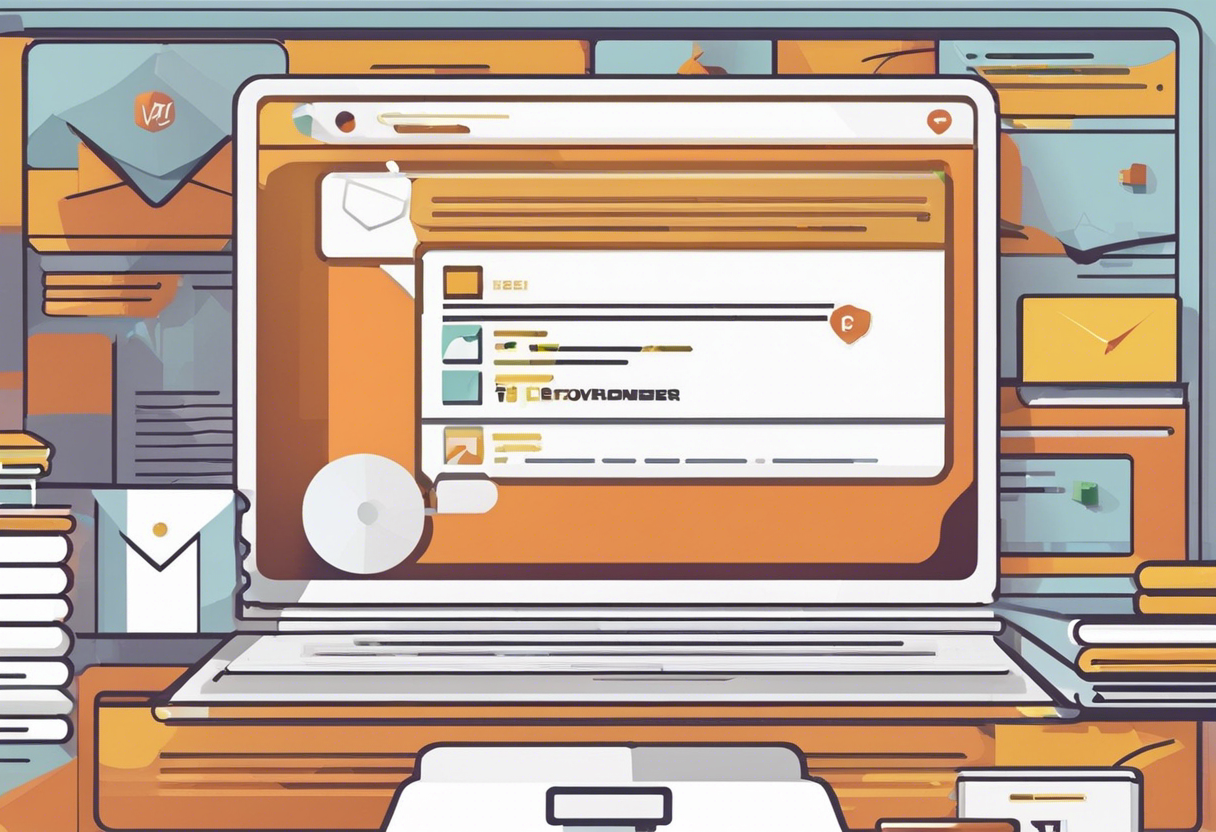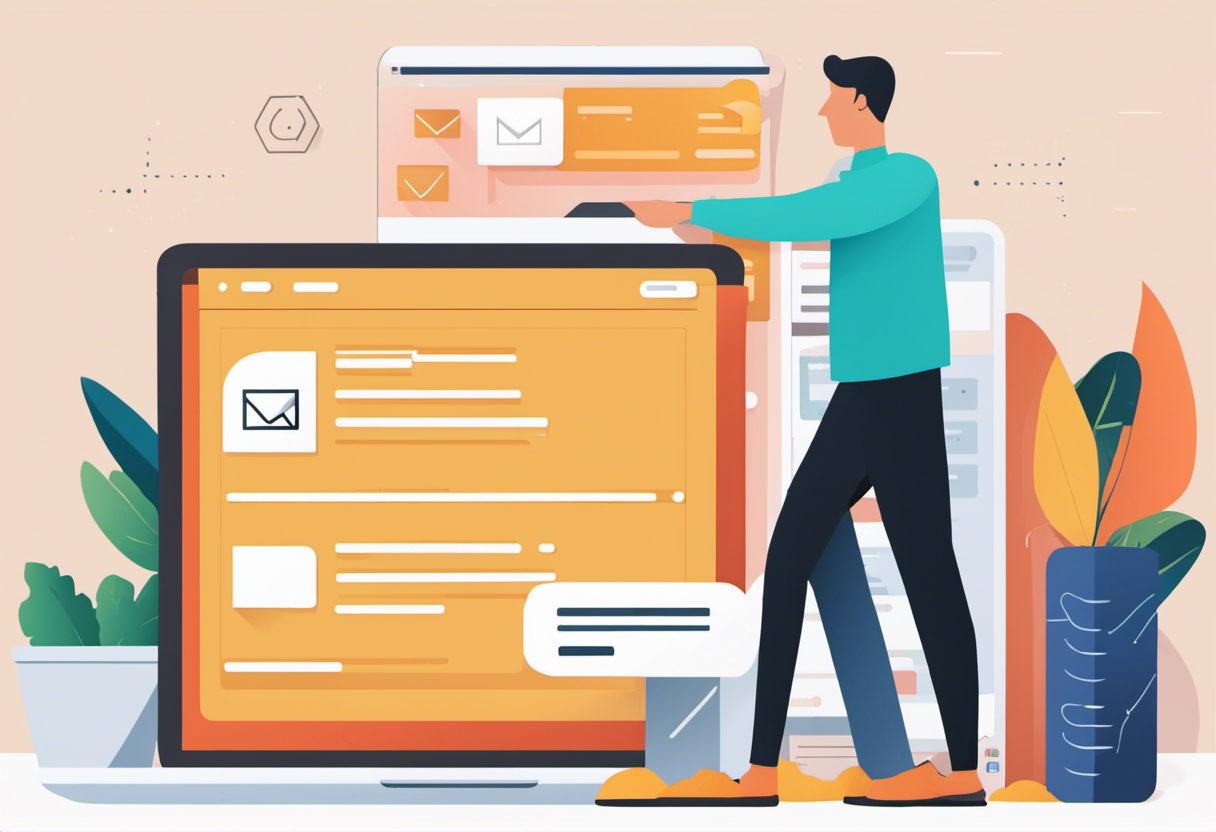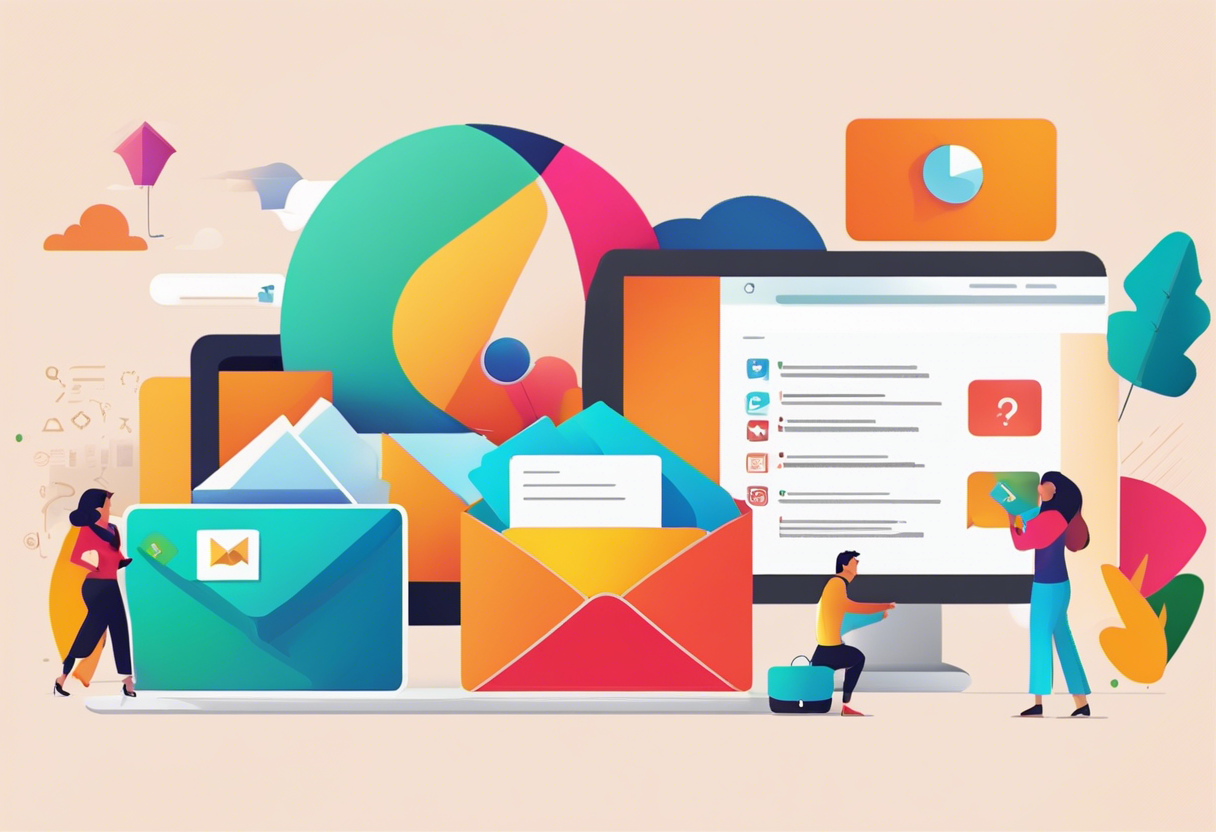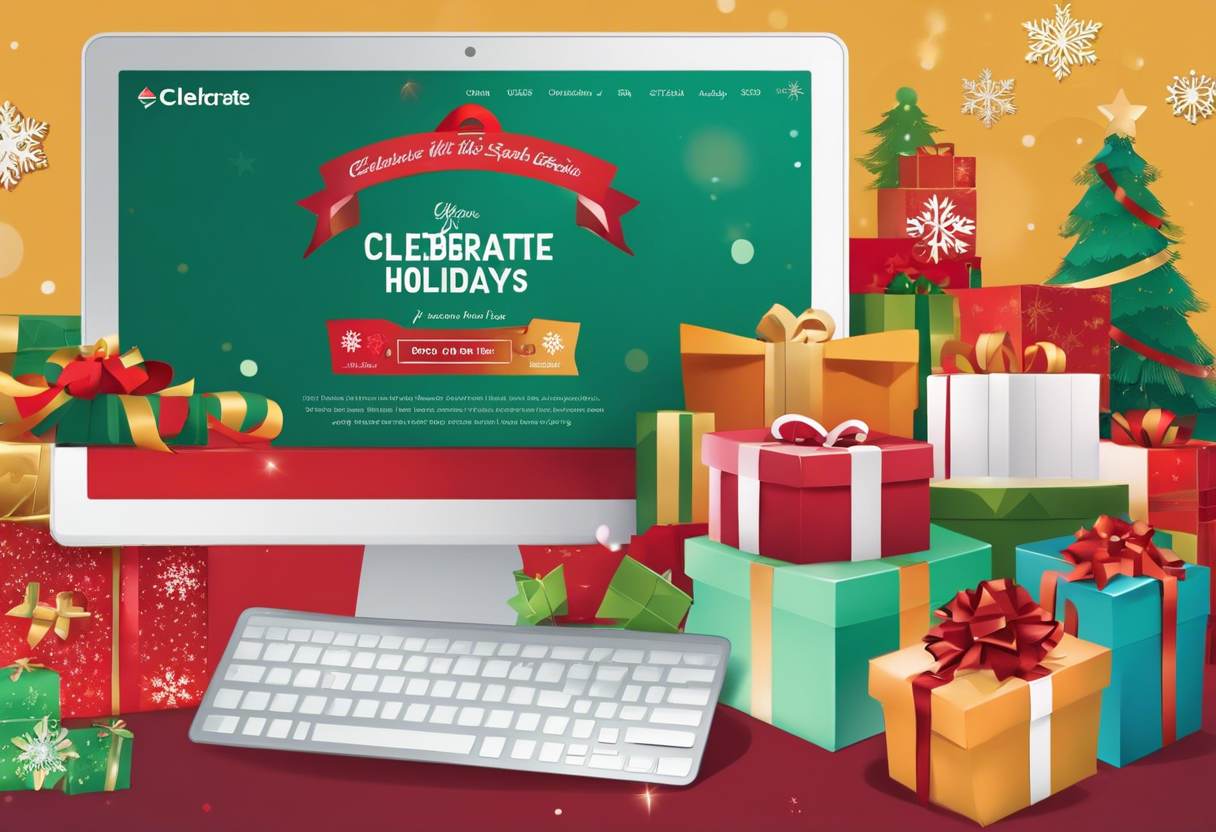
Small Business Growth Hacks- How to Skyrocket Success with Email Marketing
- USpeedo
- 16 Nov, 2023
Building Brand Awareness
Email marketing provides a powerful avenue for creating brand recognition and cultivating an identifiable brand image. Through consistent communication and reinforcement of core messaging, businesses can establish their unique identities in the minds of customers.
The strategic use of branding elements like logos, color schemes, fonts, and taglines in email campaigns helps associate those visuals directly with the brand. Repeated exposure over time trains customers to recognize those branded elements, connect them with the business, and understand what they represent. This brand familiarity generates awareness and recall.
Regular email communication also allows businesses to reinforce their core values, promise, and personality in every interaction. Customers who open a business's emails expect and appreciate seeing that brand identity shine through. This consistency and repetition helps cement the brand positioning and build familiarity.
Further, delivering valuable content over time enables a business to demonstrate expertise and nurture trust. Email is a channel that facilitates relationship-building by keeping communication open between businesses and customers. When customers receive consistent value, tailored recommendations, and thoughtful engagement, email marketing helps nurture brand loyalty based on trust in what the brand represents.
Targeted Marketing: The Power of Email Segmentation and Personalization
Email marketing enables businesses to target specific customer segments in a strategic, personalized manner. Through email segmentation, companies can divide their contact lists into groups based on demographics, interests, behaviors, and other attributes. This allows them to deliver content that is highly relevant to each group.
For example, an ecommerce business can segment its list by past purchase history to recommend specific products that match customers' needs. Or it could target younger subscribers with content focused on trending fashion and music.
Segmentation allows for personalization at scale. Rather than sending generic emails to every recipient, businesses can customize content for each segment. This could include using first names, referring to past interactions, and recommending products based on preferences. The result is a tailored experience that resonates more deeply with customers.
Research shows personalized emails deliver 6 times higher transaction rates compared to generic campaigns. Customers feel valued when content is aligned with their interests and needs. This makes them more likely to engage with emails and convert into buyers.
With user-friendly email marketing platforms, segmentation and personalization are easy and cost-effective to implement. Businesses simply define their audience groups and set up automated workflows to deliver targeted content to each one. As they gather more customer data over time, messaging can become increasingly personalized.
Email marketing gives small businesses the same segmentation and personalization capabilities as enterprise brands. This allows them to deliver messaging with precision and relevance. In a crowded inbox, targeted content cuts through the noise to deliver higher engagement and return on investment.
Cost-Effective Solution
Email marketing provides an extremely cost-effective solution for small businesses operating on limited budgets. When compared to the high costs of print, TV, radio and online advertising, email marketing is vastly more affordable. The average cost per lead for email marketing is estimated to be around $10-15, whereas costs per lead for other channels are significantly higher:
- Print advertising (direct mail) - $62 per lead
- Pay-per-click (PPC) - $55 per lead
- Social media ads - $25 per lead
- TV and radio ads - $100+ per lead
With email marketing, small businesses do not have to invest in expensive ad campaigns and can maximize their budgets. The platforms and tools available make it easy and efficient to set up and manage email campaigns without the need for dedicated marketing teams. Automation features help streamline the process and allow for more effective segmentation and targeting.
Overall, email marketing empowers small businesses to reach and engage customers in a personalized way that traditional advertising simply cannot match. The cost efficiency gives small businesses an attainable way to boost their marketing efforts and achieve real returns on investment.
Building Customer Relationships
Email marketing is instrumental in building and nurturing positive customer relationships over time. By consistently delivering relevant and valuable content directly to subscribers' inboxes, businesses establish themselves as knowledgeable, trustworthy sources that customers can rely on.
Regular email communication helps strengthen brand affinity and foster a sense of community between businesses and their audience. Through newsletters, special promotions, exclusive offers, and other initiatives, brands can nurture relationships and engage customers on an ongoing basis. Customers appreciate getting customized content and offers tailored specifically to their interests and needs.
The direct access email provides to a brand's audience allows businesses to build rapport through helpful content and resources. This facilitates lasting connections beyond single transactions. Email marketing helps shift interactions with customers from impersonal sales to relationship-building engagements. When customers feel acknowledged and valued, they are more likely to trust a brand and remain loyal over time.
Email marketing ultimately enables small businesses to nurture relationships with customers in an efficient, scalable way. By leveraging data-driven insights about subscriber behaviors and preferences, brands can continually refine their approach to forge meaningful connections through relevant content and compelling experiences. This nurturing strategy is key to customer retention and long-term success.
Increasing Website Traffic
Email marketing provides an excellent opportunity for small businesses to drive more traffic to their websites. By including links to landing pages, product pages, blogs, or other website content within emails, businesses can get their messaging and offerings directly in front of target audiences. When crafted strategically, email links entice subscribers to click through to the website to learn more or make a purchase.
The key is to place links at critical touchpoints in the email journey. For example, highlighting a link to a new product page after describing the item in the email copy, or including a call-to-action button to link to a sale or promotion page. Links should be seamlessly woven into the narrative and provide a logical next step for recipients.
Tracking click-through rates on links is also invaluable for small businesses. This data reveals which types of content resonate most with subscribers and encourages them to engage further. Businesses can then optimize link strategies and placements in future emails based on top-performing web pages and calls-to-action.
The combined power of compelling copy and strategic links gives small businesses an opportunity to showcase more of their brand, offerings and expertise. This can attract new website visitors and convert them to customers through purchases and other conversions. Email marketing helps expand a business’ digital footprint and visibility without straining limited budgets. Ultimately, driving website traffic through email links generates more online exposure and translates to tangible sales and growth.
Driving Sales with Personalized Offers and Compelling Calls-to-Action
Email marketing provides a direct channel for sending compelling offers and calls-to-action that motivate customers to make purchases. By crafting targeted offers that provide real value to subscribers, small businesses can influence buying decisions and generate more revenue through email campaigns.
Personalized offers that provide special discounts, promotions, or bargains to subscribers can incentivize purchases. Email marketers can leverage data on customer interests and behaviors to create relevant offers tailored to different segments. Dynamic content and personalization tools enable sending customized offers at scale that feel exclusive to each recipient.
Strategically placed calls-to-action that inspire readers to purchase are equally important. Compelling CTAs with action-driven language, strategic placement, and eye-catching designs can effectively motivate subscribers to buy. CTAs that stand out visually while conveying urgency and value can boost conversions.
For example, limited-time offers with discounts that decrease over time can create a sense of urgency and scarcity that propels readers to act. Likewise, using contrasting colors, larger fonts and buttons for CTAs make them more visible and clickable.
By continuously testing and optimizing CTAs and offers through A/B testing, small businesses can refine their email campaigns for maximum impact. The strategic use of personalized offers and calls-to-action is instrumental in driving higher sales volumes through email marketing.
Boosting Customer Loyalty
Email marketing plays a pivotal role in boosting customer loyalty for small businesses. By consistently providing exclusive offers and personalized content tailored to customers' interests and needs, businesses can nurture a sense of belonging and strengthen relationships.
Exclusive discounts, coupons, and special promotions sent directly to subscribers' inboxes make them feel valued and incentivize them to make repeat purchases. These special offers give customers a reason to open and engage with emails while cost-effectively enticing them to buy again.
Personalized content goes hand-in-hand with exclusive deals in building loyalty. Segmenting the customer base based on interests and purchase history allows small businesses to send relevant recommendations and tailored content. This level of personalization makes customers feel known, enhancing the relationship.
Birthday offers, customer appreciation days, and loyalty programs further cultivate loyalty by making subscribers feel special. Email is the ideal channel for managing and communicating these programs.
With email’s capabilities for automation and segmentation, small businesses can scale personalized loyalty and reward programs cost-effectively. The regular communication and added value boost customer retention over the long-term.
Leveraging email marketing to boost customer loyalty results in higher lifetime value of retained customers. By strengthening relationships, small businesses can unlock repeat business and brand advocacy from loyal customers.
Encouraging Repeat Business
Email marketing is a powerful tool for generating repeat business from existing customers. By reminding customers of their positive experiences, offering incentives for future purchases, and providing personalized recommendations, businesses can nurture lasting relationships that translate to recurring revenue.
Regular communication via email serves as an effective way for brands to stay top of mind with customers. Sending reminders about previous purchases or interactions with the brand re-establishes that connection and may motivate customers to return. This could include recapping details of a stay at a hotel, the menu items a customer enjoyed at a restaurant, or reminders about warranty expiration dates for products.
Offering special discounts, promotions, or loyalty rewards exclusively through email is another excellent strategy for enticing repeat business. Customers appreciate incentives and may be persuaded to make additional purchases to take advantage of an offer. Limited-time percent-off discounts, free shipping coupons, and birthday or loyalty rewards help show existing customers that businesses value them.
Making product recommendations based on past purchase behavior or stated preferences is also instrumental in driving repeat sales. If a customer frequents a certain product category or brand, suggesting complementary items keeps the brand top of mind while offering them added value. Personalized recommendations reinforce the individualized experience and demonstrate that businesses understand and cater to customers' needs.
By tapping into the power of email, small businesses can strengthen relationships with existing customers and convert them into brand advocates who make regular repeat purchases. Thoughtful reminders, strategic incentives, and tailored recommendations are invaluable tools for customer retention and recurring revenue.
Final Words
Email marketing provides a dynamic suite of advantages that can greatly benefit small businesses. With a strong foundation in email marketing, small businesses can build credibility, boost their digital presence, and propel their success online.
